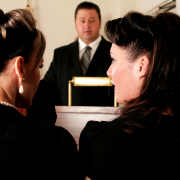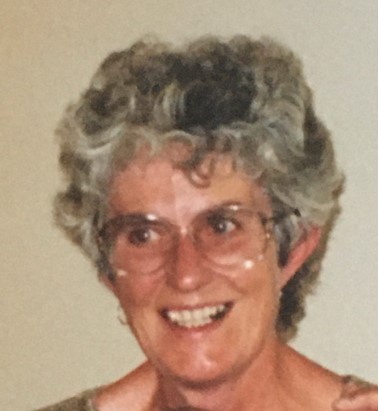What are the most common scams you should be wary of after a loved one dies?
 After dealing with your loved one’s burial or cremation services, it is normal to feel consumed with grief. Keep in mind that while you are in a vulnerable state dealing with stress and financial concerns, you become the target of scammers. Unfortunately, these mean people abound, and they prey on you while you are down and out. They especially like to hit on widows or widowers who cannot think straight. Unscrupulous people lurk in the dark to victimize you and your loved ones.
After dealing with your loved one’s burial or cremation services, it is normal to feel consumed with grief. Keep in mind that while you are in a vulnerable state dealing with stress and financial concerns, you become the target of scammers. Unfortunately, these mean people abound, and they prey on you while you are down and out. They especially like to hit on widows or widowers who cannot think straight. Unscrupulous people lurk in the dark to victimize you and your loved ones.
Since people will eventually lose a beloved at some point in time, it is important to be prepared. As you plan funeral flowers, funeral songs, and other arrangements, you must stay vigilant against heartless scammers that attempt to take advantage of your sorry state. The aftermath of their tricks is the last thing you should be dealing with during this trying period. Knowledge can help you protect yourself against shady people. Learn the most common death scams below to help you avoid falling for these nasty tricks:
Facing Potential Identity Theft
In this digital world, identity theft scammers abound, from phishing scams to credit card frauds. Sadly, the most common target of these thieves is deceased individuals. They prowl online death announcements and local newspaper obituaries which contain a wealth of personal information from natal dates to surviving family members’ details. The next step is they call around to secure social security details. After being armed with the deceased’s personal information, they open new bank accounts, charge items, and even go as far as collecting tax refunds.
To ensure you do not become a victim of this scam:
- Do not provide too much information in any obituary you publish. Though it is customary to put in the birthday, you may want to keep this private.
- On top of that, withhold your address, places of birth, mother’s maiden name, and any other information that potential thieves may use against the deceased and the bereaved family.
- Moreover, inform financial institutions and government offices ahead by providing a copy of the death certificate where the decease has an account setup.
Dealing With Debt Collection Scam
After the death of your loved one, a scammer gets in touch with you, saying the deceased owes money. The so-called debt collector sends emails, makes an elaborate SMS message, and calls you saying you are now responsible for these arrears and attempts to extort the money from you. Because these scammers have done the research, they know the personal info of the deceased. They make things sound legitimate to the point of threatening you with legal lawsuits. On top of that, some say they have legal paperwork that you need to sign, so they collect your signature or claim a processing fee.
To protect yourself, never give any information over the phone, text, or email. Do not be swayed or make sudden payments online either. If the deceased truly owes a big amount, you will receive a proper notification with corresponding documentation. Besides, you may not even be held liable for it, so it is best to seek legal advice. If someone calls you, ask for their name, company, and legitimate number to call them back. On top of that, ask for proper paperwork for verification. Scammers usually just hang up right away when you press them for more information.
Experiencing a Sudden Inheritance with Fees
When your loved one passes on, you may get a call from a so-called insurance agent stating you will receive money. The agent narrates that your loved one left you with a large insurance policy. However, before you get the full amount, you must pay processing fees or pay one last premium to get the wired cash. Similarly, a faux attorney calls to tell you that you can claim an inheritance, but you must first pay legal fees.
Before providing personal information and paying anything, assess if it is a scam first. Indeed, your loved one may have left an insurance policy that you are not aware of. In the same token, a will could have been left with an attorney. But keep in mind, these services usually have been paid for ahead, so they will not ask you for money upfront. Of course, it would be nice to get a financial inheritance but seek the details first to ensure that you’re not dealing with a crook.
Falling Prey to Home Invasion
The most reprehensible of all scams is when burglars invade your home. Since you published an obituary, they know your house will be empty on what date and what specific hours. After all, you will be busy with the funeral, memorial, and reception services. It is very common for expert criminals to break in during the published times. They check the obituary and find a way to get your home address. To protect yourself, never release your address and other very specific information online. It may also be safer to ask a friend to stay in your house during service hours.
Overcharging Suppliers
Finally, the last possibility is dealing with shady merchants who suddenly overprice caskets and other items you may need for the final disposition. Remember, as a consumer, the law protects you. Suppliers in the field of death care are required to give you a list of prices for their goods and services. You have the freedom to choose whatever fits your budget. Ask for the details upfront, so you are not left to deal with expensive items that only strain your wallet. To ensure you make a sound decision while you are mourning, bring a close friend while making funeral arrangements. Reputable funeral homes will not mind because they have your best interest at heart.









